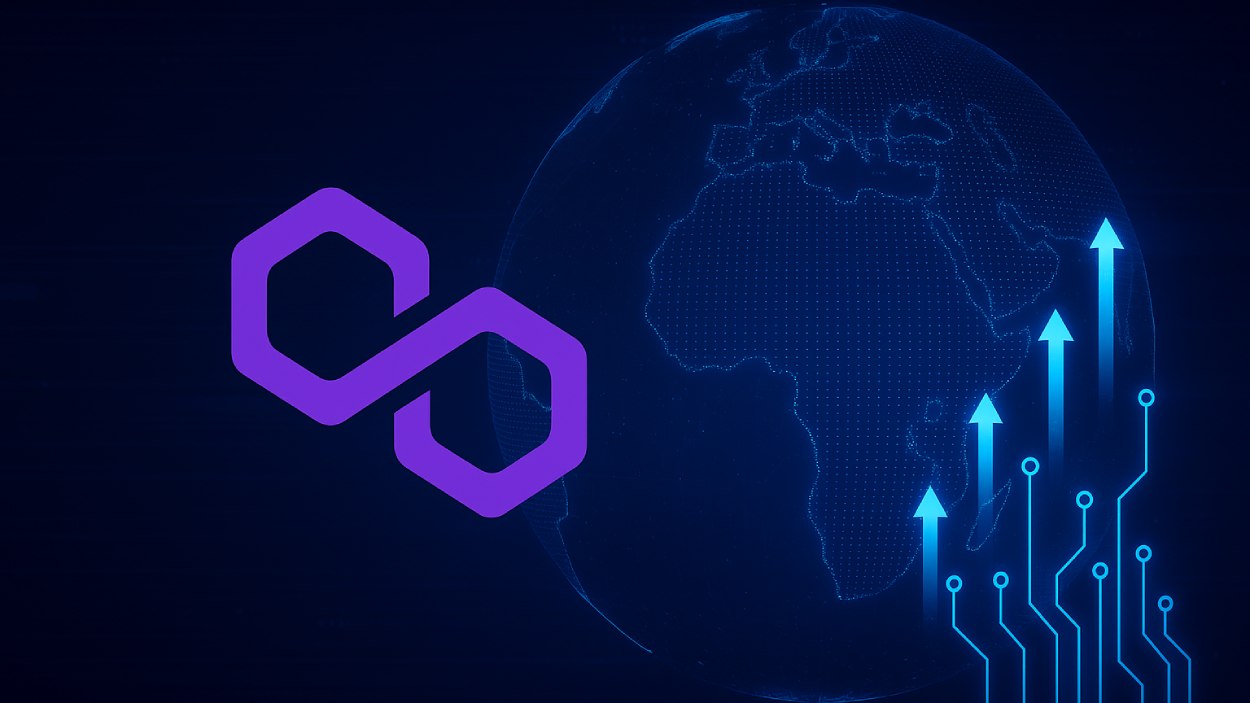Polygon has launched its major Rio upgrade, promising faster transaction speeds, better validator rewards, and enhanced network reliability.
Quick Summary – TLDR:
- Polygon’s Rio upgrade activates a new Validator-Elected Block Producer model, aiming for 5,000 transactions per second
- Stateless block validation reduces hardware demands, making it easier for more validators to participate
- New economic model ensures fairer fee distribution, boosting incentives for non-producing validators
- Upgrade enhances decentralization, efficiency, and real-world payment readiness
What Happened?
Polygon, the popular Ethereum Layer 2 scaling solution, has deployed the Rio hardfork on its proof-of-stake mainnet. This highly anticipated upgrade introduces a redesigned block production process and a new economic model while targeting massive transaction throughput and greater decentralization.
Rio is a significant milestone in Polygon’s “GigaGas” roadmap, setting the stage for a blockchain capable of handling real-world payment infrastructure.
A global network for onchain payments needs to be fast, light, and reliable.
— Polygon (@0xPolygon) October 8, 2025
Polygon’s Rio upgrade delivers.
Introducing a new-look, rehauled with: near-instant finality, zero risk of reorgs, lightweight nodes, and the path to ~5k TPS.
Rio is everything you need in global… pic.twitter.com/u5lMhEMHGc
Rio Upgrade Introduces Validator-Elected Block Producer (VEBloP)
At the core of this upgrade is the Validator-Elected Block Producer (VEBloP) system. Rather than having many validators compete to produce blocks simultaneously, this model allows validators to elect a small group of block producers. One producer is active at a time, while designated backups stand by in case of any disruption.
- Reduces block times.
- Eliminates chain reorganizations.
- Enhances network stability.
- Empowers validator community governance.
If the active producer fails, a backup immediately takes over, ensuring continuity without disruption.
Stateless Validation Makes Running a Node Easier
Rio also activates PIP-72, introducing witness-based stateless block validation. This allows nodes to validate transactions using lightweight cryptographic proofs, or “witnesses,” rather than maintaining the full blockchain state.
- Lowers hardware requirements.
- Speeds up syncing.
- Encourages broader validator participation.
This change opens the door for more people to operate validator nodes, strengthening Polygon’s decentralization and accessibility.
New Economic Model Ensures Fairness
Another major improvement under Rio is the updated economic framework defined in PIP-65. Previously, rewards heavily favored block producers. Now, transaction fees and Maximal Extractable Value (MEV) are more equitably shared with all validators, including those running lightweight nodes.
- Incentivizes more validators to join
- Reduces reliance on expensive hardware
- Promotes long-term sustainability of the network
By ensuring fair compensation, Polygon aims to keep its validator community motivated and diverse.
A Leap Toward 5,000 Transactions Per Second
Polygon’s past upgrades like Bhilai and Heimdall helped the network hit around 1,000 transactions per second (TPS). With Rio, the team is now eyeing a leap to 5,000 TPS, making it one of the fastest Layer 2 blockchains on Ethereum.
- Scales for global payment and remittance infrastructure.
- Keeps fees stable and affordable.
- Supports real-world asset transactions and stablecoin payments.
This speed, combined with affordability, strengthens Polygon’s appeal for enterprises, developers, and global financial applications.
The Bigger Picture for Polygon
The Rio upgrade comes at a pivotal moment for Polygon, especially after a few network stability issues earlier this year. In July, the network faced a brief outage due to a validator problem. In September, finality delays prompted an emergency hardfork. Rio addresses these concerns by tightening consensus mechanisms and improving block finality.
Polygon also continues to grow its ecosystem. Recently, AlloyX launched a Tokenized Money Market fund (RYT) on Polygon, showing increased adoption from real-world finance players.
SQ Magazine Takeaway
I think this Rio upgrade is one of the most important milestones for Polygon in recent years. It’s not just a technical overhaul, but a clear commitment to scaling for global use, making blockchain more inclusive and efficient. What excites me the most is how non-tech users can now join as validators without needing a supercomputer at home. Plus, pushing toward 5,000 TPS is no small feat. This is how you build a blockchain that can handle tomorrow’s internet economy.


































































